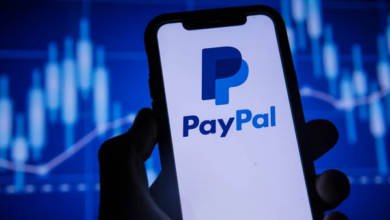
Blockchain Technology – The Foundation of a Decentralised Future
Blockchain technology, often hailed as one of the most transformative innovations of the 21st century, has evolved from a niche concept to a foundational pillar for modern digital ecosystems. Although closely associated with cryptocurrencies like Bitcoin, blockchain’s potential extends far beyond financial transactions, offering new ways to think about data security, transparency, and trust in various sectors.
What is Blockchain Technology?
At its core, a blockchain is a decentralized digital ledger that records transactions across multiple computers in such a way that the registered transactions cannot be altered retroactively. This ensures the security and integrity of the data. The name “blockchain” comes from the structure of the technology: it consists of a chain of blocks, where each block contains a batch of transactions.
Each block is linked to the previous one via a cryptographic hash, forming a continuous chain. This structure is maintained across a distributed network of nodes (computers), all of which have a copy of the entire blockchain. For a new transaction to be added, the majority of these nodes must reach a consensus, validating the transaction based on pre-defined rules.
Key Features of Blockchain
- Decentralization:
Traditional databases are typically managed by a central authority, creating a single point of failure. In contrast, a blockchain is decentralized, meaning no single entity has control over the entire network. This distribution enhances security and trust, as the data cannot be easily manipulated. - Transparency:
One of the most revolutionary aspects of blockchain is its transparency. All transactions on a blockchain are visible to anyone with access to the network, providing a level of openness that is unprecedented in traditional financial and data systems. This transparency helps in building trust among users. - Immutability:
Once a transaction is recorded on the blockchain, it cannot be altered or deleted. This immutability ensures the integrity of data, making blockchain particularly useful for applications where the history of transactions is crucial, such as in supply chain management or legal contracts. - Security:
Blockchain technology employs advanced cryptographic techniques to secure data. Each transaction is encrypted and linked to the previous one, making it extremely difficult for hackers to alter the information without being detected by the network. - Consensus Mechanisms:
The security and reliability of a blockchain depend on consensus mechanisms. The most common is Proof of Work (PoW), used by Bitcoin, where miners solve complex mathematical puzzles to validate transactions. Other mechanisms include Proof of Stake (PoS) and Delegated Proof of Stake (DPoS), which are less energy-intensive and are being adopted by newer blockchain platforms.
Also Check
Applications of Blockchain Beyond Cryptocurrency
- Supply Chain Management:
Blockchain can provide end-to-end transparency in supply chains, allowing companies to track the journey of products from origin to consumer. This is particularly useful in industries like food and pharmaceuticals, where authenticity and traceability are critical. - Healthcare:
In healthcare, blockchain can be used to create secure, tamper-proof records of patient data. This not only protects patient privacy but also ensures that healthcare providers have accurate and up-to-date information, which can improve treatment outcomes. - Voting Systems:
Blockchain has the potential to revolutionize voting systems by providing a secure, transparent, and immutable record of votes. This could increase trust in electoral processes and reduce the risk of fraud. - Smart Contracts:
Smart contracts are self-executing contracts with the terms of the agreement directly written into code. These contracts automatically execute when predefined conditions are met, reducing the need for intermediaries and increasing efficiency. They are being used in a variety of fields, including finance, real estate, and legal agreements. - Digital Identity:
Blockchain can give individuals control over their digital identities, allowing them to manage and share personal data securely. This could be a game-changer for industries that rely on identity verification, such as banking and e-commerce.
Challenges and Future Outlook
Despite its immense potential, blockchain technology faces several challenges. Scalability remains a significant hurdle, as most blockchains currently struggle to process large volumes of transactions quickly. Additionally, the energy consumption of certain consensus mechanisms, particularly Proof of Work, has raised concerns about the environmental impact of blockchain.
Moreover, regulatory uncertainty continues to be a barrier to widespread adoption. Governments around the world are still grappling with how to regulate blockchain technology, especially in relation to its use in cryptocurrencies.
However, ongoing advancements in the field, such as the development of more efficient consensus mechanisms and scalable blockchain networks, suggest that these challenges will be overcome in time. As blockchain technology matures, its applications are likely to expand even further, disrupting industries and creating new opportunities for innovation.
Blockchain technology is much more than the backbone of cryptocurrencies; it is a groundbreaking innovation that has the potential to reshape various aspects of our digital lives. By offering unparalleled security, transparency, and decentralization, blockchain is paving the way for a more secure and equitable digital future. While challenges remain, the continued evolution of this technology promises to unlock new possibilities and drive significant change across multiple sectors.








